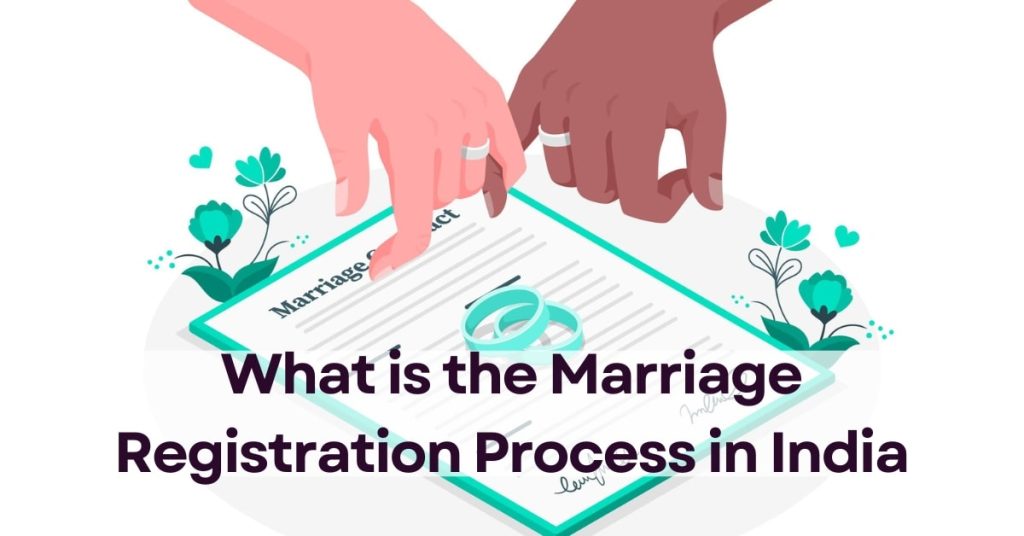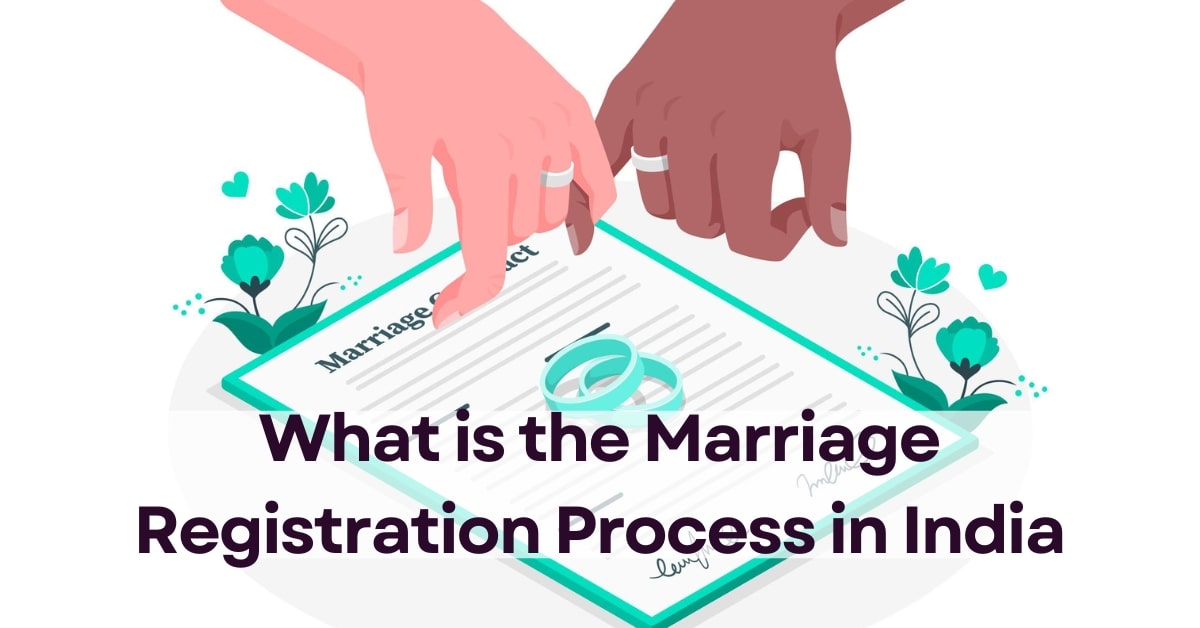
Table Of Content
- Why is Registration of Marriage important?
- Documents for Marriage Registration in India
- Process for Registering Marriage in India
- Marriage Registration Fees in India
- Advantages and Disadvantages of Marriage Registration
- FAQs
Marriage is an auspicious day in any woman’s life. Only those who are confident they can spend their entire lives in this holy connected relation of husband and wife should enter into the bond. Since India has always been so particular about marriages and sacred rituals, it is an emotional and heart-touching moment for everyone. Getting your marriage registration process done after you are married is a salient step but how you can do that is very much unknown to many so discuss it below that ‘what is the marriage registration procedure ’:
Why is Registration of Marriage important?
It gives the social security and confidence that the couple’s experience is tremendous. The registration of marriage is made important hence if any of the partners is dead the other can claim the insurance plus the procedure to apply for the passport also becomes easy. You can also equip many other legal documents such as driving license, bank accounts, etc. The marriage registration is compulsory in India and the process needs to be done both in Love and arranged marriages plus in all castes also.
What documents are required for Marriage Registration in India?
The documents which are required for register marriage procedure in India are:
- The Groom’s residence address.
- Adhaar Card of both parties. Or any other identity proof such as driving license, electricity bill, Voter ID card, etc
- Date of Birth Proof
- individual Affidavit
- 2 Witnesses
- Passport size photograph
What is the Process for Registering Marriage in India?
The procedure can be done under two Acts Hindu Marriage act, 1955, and the Special Marriage Act, 1954. All marriages in India are registered under these acts.
- The Hindu Marriage Act, 1955: If either party (husband or wife) has already been into previous marriage and is not divorced so he/she is condemned to marry again.
- The Special Marriage Act, 1954: If the age of either party is below the legal age then the marriage will be censured as the right age for marrying for a female is 18+ and for the males is 21+.
Both ways you can get your marriage registration in India done online & offline in India.
Offline Marriage Registration Process
The married couple can visit any nearby sub-registrar under whose jurisdiction the marriage was solemnized. It can be done at the sub-registrar office, where one of the partners has resided for more than six months. Both parties’ customs and rituals may be followed during a Hindu wedding.
Online Marriage Registration Process
The more convenient way to do this is online marriage registration in Delhi or anywhere the online registration marriage process takes place:
- Access the home state applicant’s official government website
- Visit the website and look for the registration form for marriage there.
- Provide the personal data for both parties to the marriage that the form requests.
- Once the form is completed, submit it.
How much fees for Marriage Registration in India?
Generally, the fees or stamp duty varies from State to State but under the Acts, they are most probably fixed under the Hindu Marriage Act the Cost is around 100 & under the Special Marriage Act is around 150 which is also for court marriage online registration and offline.
The Court marriage registration process is as same as the normal marriages but the difference is there are some conditions which are laid down such as the groom should not have a living spouse and vice versa plus the age factor is a must that both should be 18+, health conditions should be good, etc. You can get your Court marriage online registration done through the government website.
Advantages and Disadvantages of Marriage Registration
There are various pros and cons of marriage registration that one can have which we have outlined below. Have a look
Advantages of Marriage Registration
- Pocket Friendly: It’s Cost Friendly. No huge amounts will be getting wiped off from both parties.
- No Rituals & Ceremonies: No lengthy ceremonies and rituals need to be performed.
- Legally Valid: Most significantly, because of the guidelines established by the Indian government to guarantee the legitimacy of marriages taking place in court, court marriages are entirely legal, safe, and real. To rule out the possibility of interracial marriages in India, the pair must undergo verification procedures.
Disadvantages of Marriage Registration
- Lengthy legal process: The register marriage procedure for lovers is a lot more lengthy than ever imagined. The couple needs to go through a number of procedures. The hierarchy is long and tiresome. The couple has to take a number of permissions from several authorities and go under the end amount of the verification process.
- Documentation: Too many documents are required to be submitted during the marriage registration process, such as proof of address for the bride and the husband. PAN cards and address evidence of witnesses serve as proof of both parties’ ages. 6 photographs of each party the size of a passport.
- Witness: There should be at least 2 witnesses which are compulsory to be present at the court marriage process in Delhi or anywhere the marriage registration takes place.
Frequently Asked Questions (FAQs)
As already discussed above, as a formality for registering marriage at least 2 witnesses are compulsory to be present there at the time of the process of marriage registration.
A marriage registration process performed in accordance with the Hindu Marriage Act of 1955 is noted to take place between 15 and 30 days after the application has been submitted. Moreover, it is roughly 60 days in the case of the Special Marriage Act of 1954.


